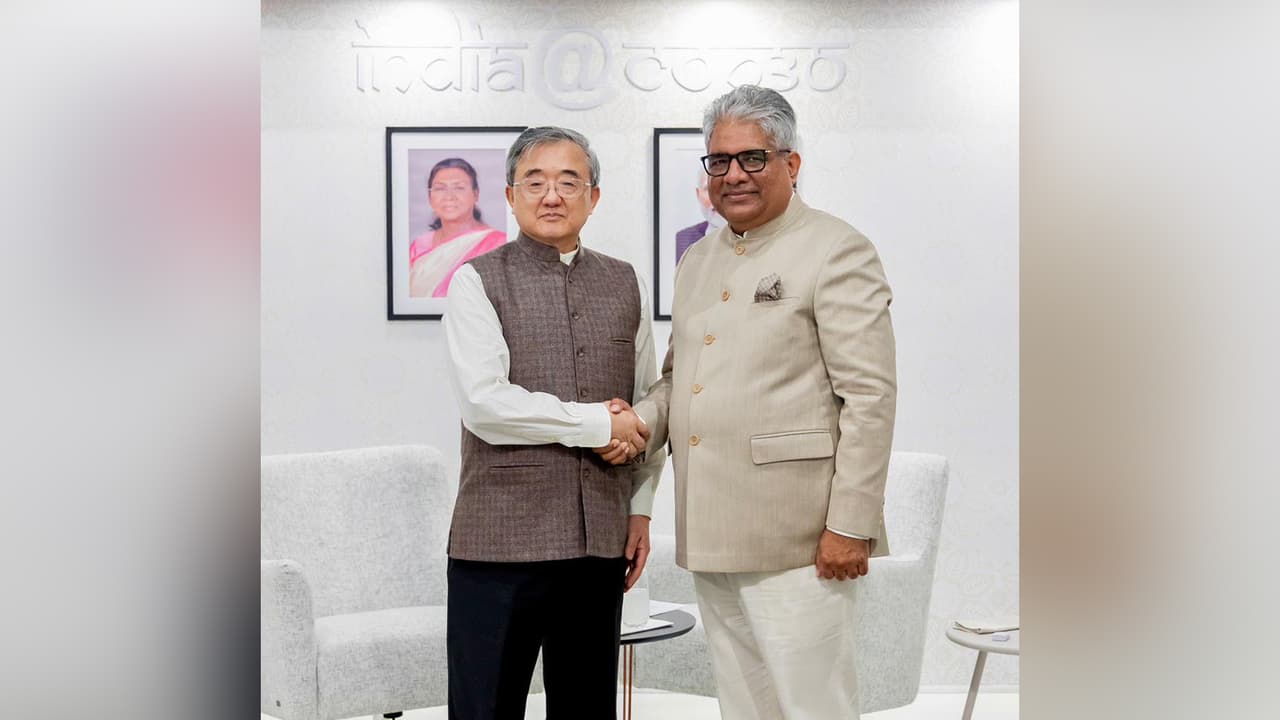At COP30 in Brazil, Union Minister Bhupender Yadav met his Chinese counterpart to discuss LMDC coordination and the Paris Agreement. He also addressed a high-level segment, advocating for global cooperation to protect big cats for climate action.
India, China Discuss Climate Cooperation at COP30
Union Environment Minister Bhupender Yadav on Wednesday met China’s special envoy for climate change Liu Zhenmin on the sidelines of COP30 in Belem, Brazil. “Met with Mr Liu Zhenmin, Special Envoy for Climate Change, China, on the sidelines of COP30 in Belem today. Our discussions involved matters related to co-ordination between LMDC countries in the ongoing developments in COP30, with particular focus on maintaining the integrity of the Paris Agreement,” Bhupender Yadav wrote on ‘X’.
Met with Mr Liu Zhenmin, Special Envoy for Climate Change, China, on the sidelines of COP30 in Belem today. Our discussions involved matters related to co-ordination between LMDC countries in the ongoing developments in COP30, with particular focus on maintaining the integrity… pic.twitter.com/m5bah3KUyX — Bhupender Yadav (@byadavbjp) November 19, 2025
Call for Global Action to Protect Big Cats
Earlier, Bhupender Yadav, addressed the High-Level Ministerial Segment on the International Big Cat Alliance (IBCA) at UNFCCC CoP30 in Belem, Brazil, on Monday. He called for renewed global cooperation to protect big cat species and their habitats as part of integrated climate and biodiversity action, according to the Ministry of Environment, Forest and Climate Change.
The event was graced by the Minister of Agriculture and Livestock, Government of Nepal, Madan Prasad Pariyar, Ministry of Environment, Forest and Climate Change. The Minister thanked Brazil for hosting the event and noted the timeliness of the theme: “Protecting Big Cats, Protecting Climate and Biodiversity.” He further emphasised that ecological challenges today are deeply interconnected and require linked solutions.
Yadav noted that Big cats are apex predators, regulators of ecological balance, and sentinels of ecosystem health. “Where big cats thrive, forests are healthier, grasslands regenerate, water systems function, and carbon is stored efficiently in living landscapes”.
He also highlighted that declines in big cat populations lead to destabilised ecosystems, weakened resilience to climate change, and loss of natural carbon sinks.
(Except for the headline, this story has not been edited by Asianet Newsable English staff and is published from a syndicated feed.)
